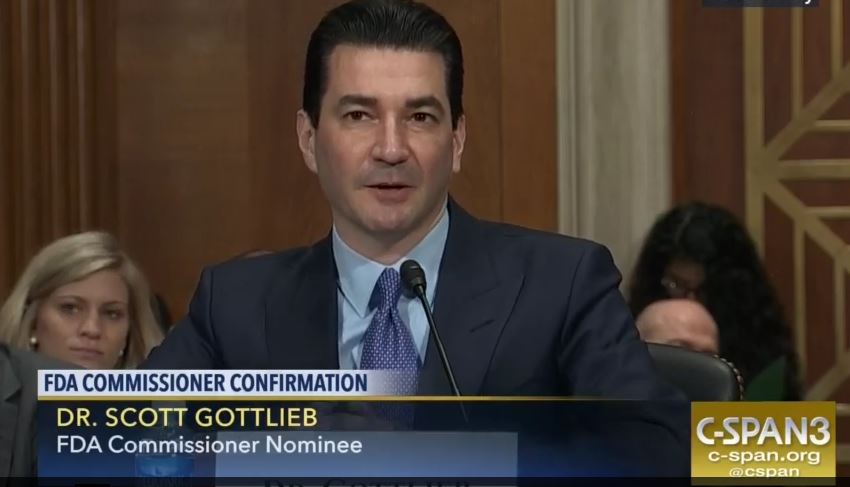Gottlieb grilled by Senators over industry links

Even though it looks highly likely that president Donald Trump’s nomination for FDA commissioner, Scott Gottlieb, will be appointed, there are still concerns over his close links with industry following a grilling by senior politicians this week.
Industry has backed Gottlieb’s appointment as the best of a bad bunch – another front-runner before Gottlieb’s nomination last month had been Jim O’Neill, a Silicon Valley investor who advocated a radical reduction in FDA regulations.
Gottlieb’s proposals seem less radical. For instance he has championed publication of FDA rejection letters, a practical solution to criticisms that pharma companies are unwilling to divulge details of the regulator’s concerns about drugs.
A well-respected doctor, who was a deputy commissioner to the FDA during the George W Bush administration, the main drawback with Gottlieb is a complicated set of links with industry.
These links came under scrutiny again at the hearing before the Senate Health, Education, Labor and Pensions Committee, which every nomination for the top post at the FDA must face.
According to the committee’s research this could cause potential conflicts of interest with more than 60 drugs that could come before the FDA, and a further 120 drugs that are further back in the development process.
During the hearing, Democrat Senator Patty Murray raised concerns about these “unprecedented financial entanglements”.
Murray also raised concerns about Gottlieb’s stance on birth control, noting that he had publicly defended the FDA’s decision to veto over-the-counter access to an emergency contraceptive drug, contrary to recommendations from its scientific advisers.
Another issue highlighted by Murray is Gottlieb’s work for medical app company Glytec, noting that he had publicly suggested using apps to manage insulin levels while he had links to the company.
Murray said: “It does trouble me that you appear to be investing in and advising a company, then using your public platform to actually benefit that company.”
In a calm and measured response, Gottlieb promised to be an “impartial and passionate advocate for public health”.
Gottlieb noted that the FDA’s work should be “guided by science”, saying he supported rigorous regulation, but favoured timely decisions on drugs.
“We should reject the false dichotomy that it all boils down to a choice between speed and safety,” said Gottlieb.
As well as saying that his links with pharma give him knowledge of the challenges of developing new drugs, Gottlieb noted that he was a cancer survivor who was treated for Hodgkin lymphoma during his previous term at the FDA.
“I have seen the importance of the FDA’s work as both a doctor and as a patient,” he said.
After his assured performance before the committee, it looks likely that Gottlieb will get the post.
But, although it is nothing new to have an FDA chief with close links to industry - his predecessor Robert Califf had similar issues - the scale of Gottlieb's tangled web of investments could cause problems should he get the job.
If he takes the helm at the FDA, Gottlieb will have to watch his step to avoid falling into conflict-of-interest traps of his own making.












